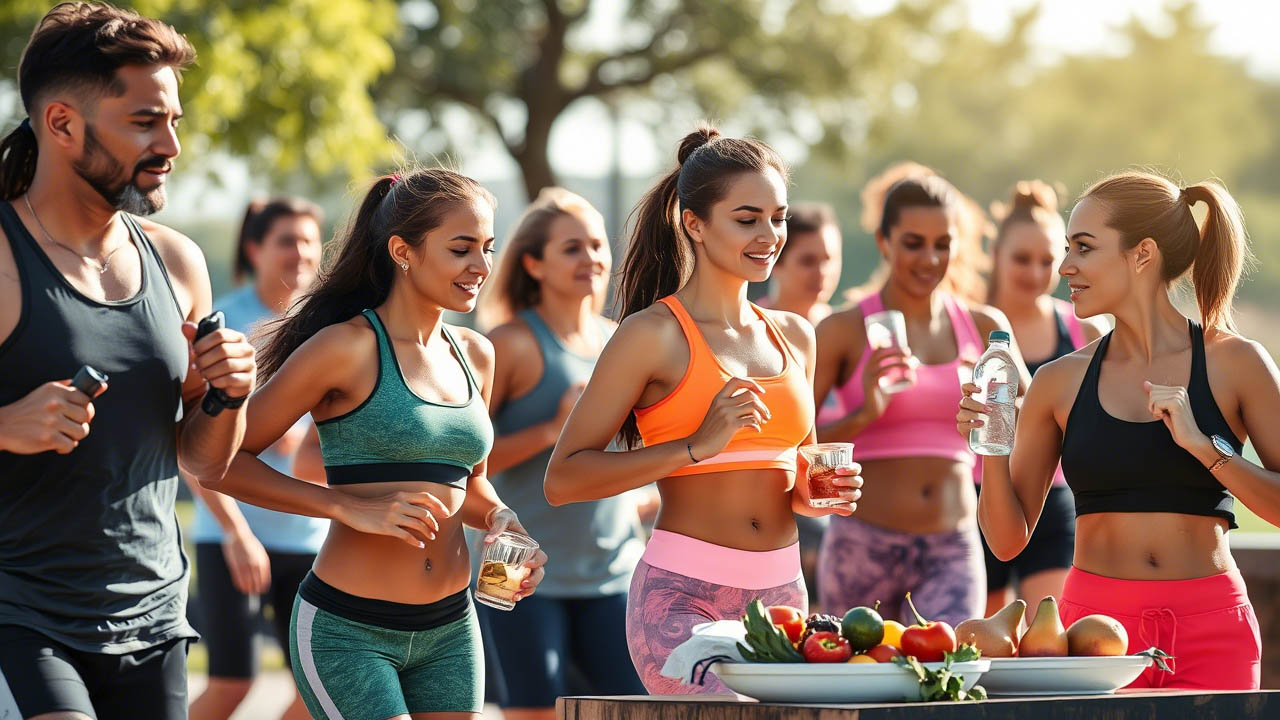Physical Address
304 North Cardinal St.
Dorchester Center, MA 02124
Physical Address
304 North Cardinal St.
Dorchester Center, MA 02124

Whether you’re a weekend warrior or elite athlete, knowing how to fuel your body for peak athletic performance can make the difference between crushing your goals and hitting the wall. The right nutrition strategy powers your workouts, accelerates recovery, and helps you reach your full potential. Let’s explore the science-backed approaches to optimizing your athletic fuel.
Learning how to fuel your body for peak athletic performance starts with understanding the three macronutrients and their unique roles:
Carbohydrates are your muscles’ preferred fuel source, converting to glucose and storing as glycogen for readily available energy. For athletes seeking peak athletic performance, carbohydrate intake should typically comprise 45-65% of total calories.
Sample Carbohydrate-Rich Foods:
Protein supports muscle repair, recovery, and growth—critical components when learning how to fuel your body for peak athletic performance. Most active individuals need 1.2-2.0g of protein per kg of body weight daily.
Quality Protein Sources:

Healthy fats provide sustained energy and support hormone production. Athletes should aim for 20-35% of calories from quality fat sources.
Beneficial Fat Sources:
Knowing how to fuel your body for peak athletic performance means mastering pre-workout nutrition. What you eat before training provides the energy needed to perform at your best.
Timing is crucial:
Pre-Workout Meal Examples:
For sessions lasting longer than 60-90 minutes, continued fueling becomes essential for peak athletic performance. Hydration works hand-in-hand with nutrition to maintain performance levels.
During-Workout Fuel Guidelines:
Hydration Strategies:
Learning how to fuel your body for peak athletic performance means recognizing that hydration is as important as solid nutrition.
The 30-60 minute window after exercise is prime time for refueling. Your body is primed to replenish glycogen stores and initiate muscle repair, making this a critical phase in how to fuel your body for peak athletic performance.
Recovery Nutrition Guidelines:
Recovery Meal Ideas:
While whole foods should form the foundation of any athletic nutrition plan, certain supplements can help fill gaps in how to fuel your body for peak athletic performance.
Evidence-Backed Supplements:
Performance-Boosting Superfoods:
Mastering how to fuel your body for peak athletic performance involves both implementing best practices and avoiding common pitfalls.
Practical Implementation Tips:
Common Nutrition Mistakes:
Learning how to fuel your body for peak athletic performance is an ongoing journey that combines science with self-discovery. The right nutrition strategy varies based on your sport, goals, body type, and individual response to different foods. Start by implementing the foundations outlined here: prioritize whole foods, time your nutrition around workouts, stay hydrated, and give special attention to recovery.
Remember that how to fuel your body for peak athletic performance isn’t about perfection but consistency. Small, sustainable changes add up to significant performance gains over time. Listen to your body, experiment thoughtfully, and adjust as needed.
Ready to take your athletic performance to the next level? Download our free sports nutrition meal plan templates or connect with one of our certified sports nutritionists for personalized guidance on how to fuel your body for peak athletic performance.
What’s your biggest nutrition challenge as an athlete? Share in the comments below!
References: